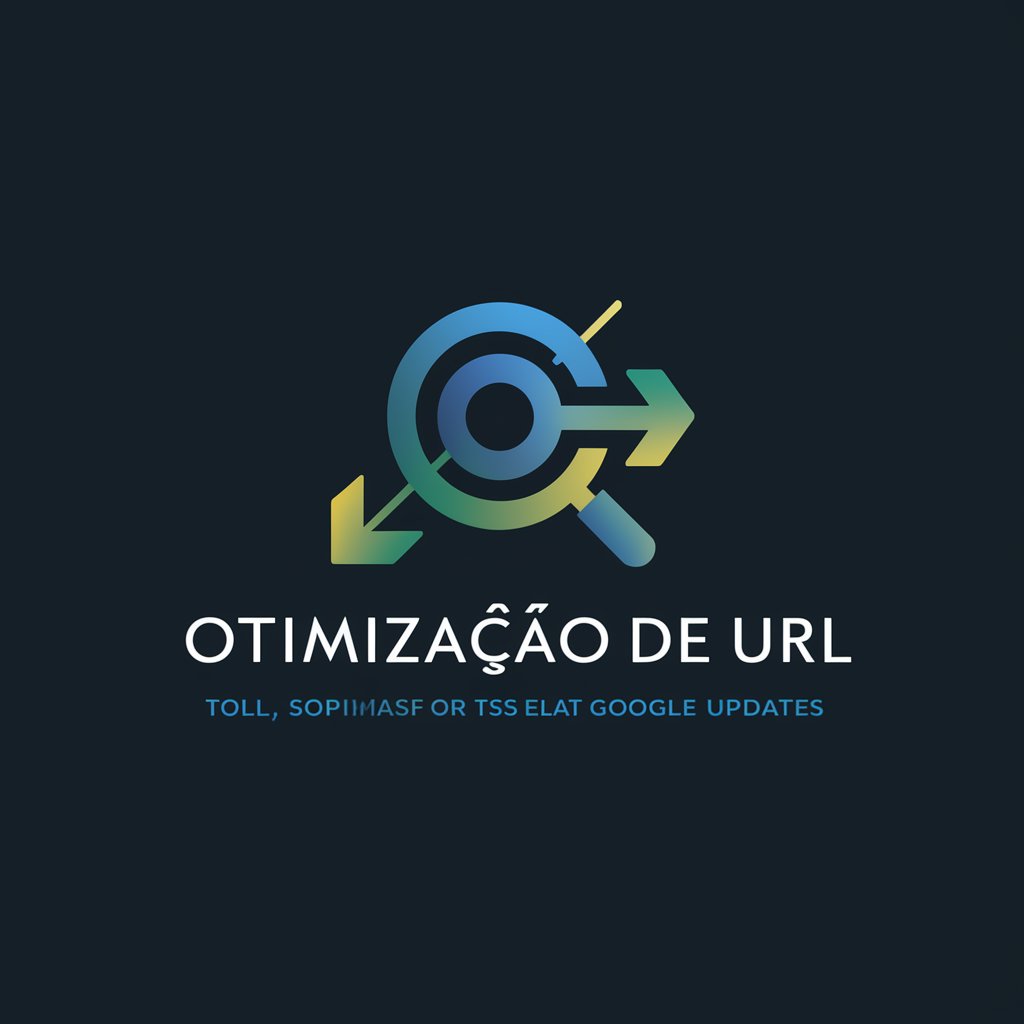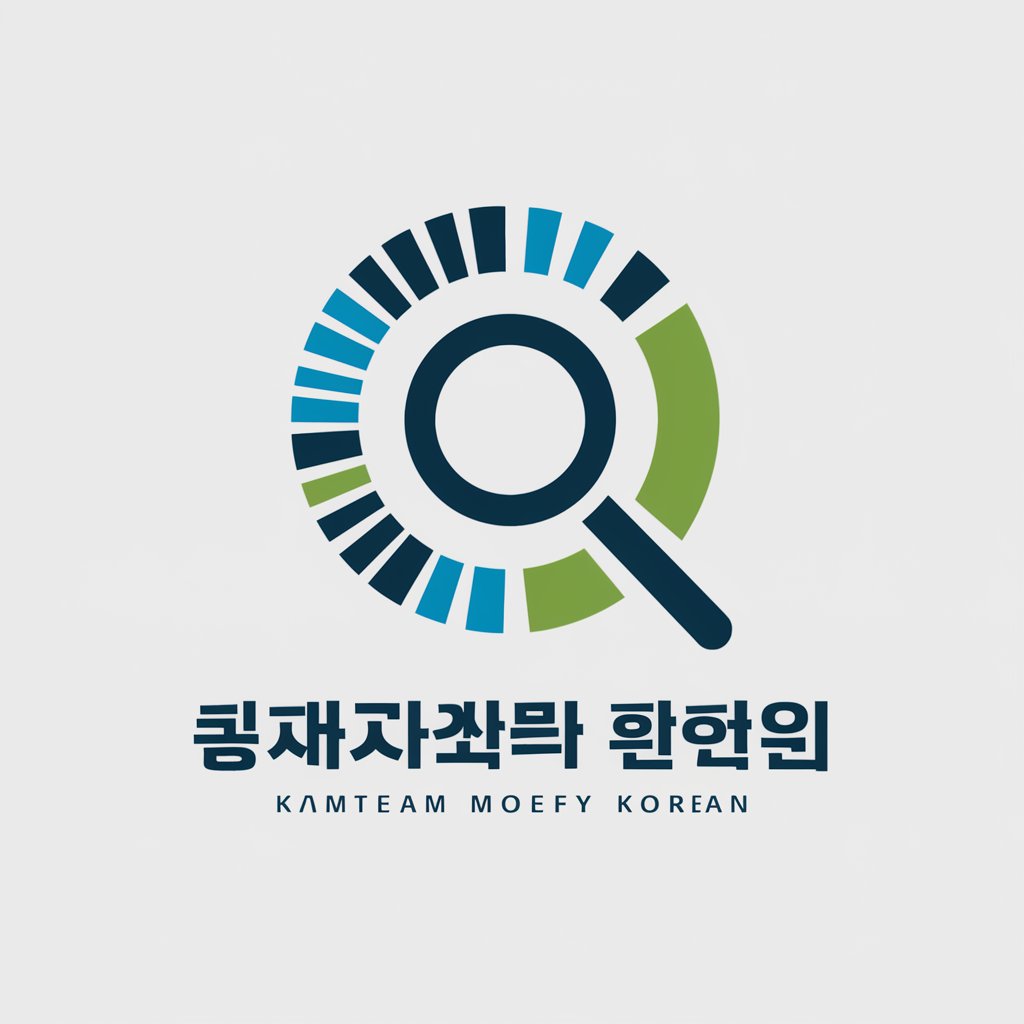**Otimização de URL** - URL Structure Enhancement

Welcome! Let's optimize your URLs for top Google performance.
Streamline URLs with AI Precision
Optimize the following URL for better SEO results:
Create a URL that reflects the latest SEO best practices for this webpage:
How can I improve the following URL to make it more SEO-friendly:
Transform this URL into a shorter, more descriptive version:
Get Embed Code
Understanding URL Optimization
URL Optimization, or 'Otimização de URL' in Portuguese, refers to the process of crafting website URLs in a manner that is easily readable by both users and search engines. The core purpose behind optimizing URLs is to improve a website's search engine optimization (SEO) and user experience (UX), making the URLs descriptive, relevant, and simple to understand. For instance, a URL like 'example.com/shoes/mens-red-running-shoes' is optimized as it clearly describes the page content as opposed to a non-optimized URL like 'example.com/prod?id=12345'. An optimized URL structure not only aids in better ranking in search engine results pages (SERPs) but also enhances click-through rates by giving users a clear idea of the webpage content before they click on the URL. Powered by ChatGPT-4o。

Core Functions of URL Optimization
Simplification of URLs
Example
Converting 'example.com/category/product?id=12345' to 'example.com/category/product-name'.
Scenario
This simplification makes the URL more readable and SEO-friendly, helping users and search engines understand the page content at a glance.
Keyword Integration
Example
Incorporating relevant keywords into the URL, such as 'example.com/buy-mens-running-shoes'.
Scenario
By including important keywords, the URL directly contributes to the page's SEO performance, making it more likely to appear in searches related to those keywords.
Use of Hyphens to Separate Words
Example
Using hyphens instead of underscores or spaces, resulting in URLs like 'example.com/womens-casual-shoes'.
Scenario
Hyphens improve readability for both users and search engines, distinguishing each word in the URL clearly.
Avoidance of Special Characters and Parameters
Example
Removing unnecessary parameters and characters, leading to cleaner URLs like 'example.com/summer-dresses' instead of 'example.com/prod.php?cat=4&item=6732'.
Scenario
Clean URLs are more user-friendly and efficient for search engines to crawl, positively affecting the website's SEO.
Implementation of 301 Redirects for URL Changes
Example
Redirecting from 'example.com/old-page' to 'example.com/new-page' using a 301 redirect.
Scenario
This ensures users and search engines are directed to the correct page, preserving the page's SEO value and improving user experience.
Who Benefits from URL Optimization
Website Owners and Developers
This group benefits from implementing URL optimization to enhance their site's SEO and usability, leading to increased visibility and user engagement.
SEO Specialists
SEO professionals utilize URL optimization techniques as part of their strategy to improve a website's ranking in SERPs, making it a crucial aspect of their work.
Content Creators
For bloggers and online publishers, optimized URLs can make their content more discoverable and shareable, directly contributing to higher traffic and engagement.
Marketing Professionals
Marketers involved in digital marketing campaigns can leverage optimized URLs to track campaign performance and ensure their promotional content is easily accessible and ranks well on search engines.

How to Use URL Optimization Tool
1
Access the tool for a complimentary trial at yeschat.ai, no signup or ChatGPT Plus required.
2
Input the URL you wish to optimize into the designated field within the tool's interface.
3
Specify the main keywords or topics your URL addresses to guide the optimization process.
4
Review the suggested optimizations, which may include URL shortening, keyword enhancement, and removal of unnecessary parameters.
5
Apply the suggested changes to your URL structure and implement a 301 redirect if updating an existing URL.
Try other advanced and practical GPTs
CodeGPT
Empowering your coding journey with AI expertise.

cosdent header content
Elevate Your Dental Clinic's Online Presence

Game Survivor | Tips and Tricks for Survival
Survive, Adapt, Overcome with AI

Sandals
Step into style with AI-powered sandal recommendations

MarketingGPT
Elevating Strategies with AI Insight

테마주 발굴 머신
Unlock Market Potential with AI

Guide
Empowering Creativity with AI

Mr. Hop
Savor Beer Wisdom with AI Expertise

SEO FAQ Integrator
Crafting SEO-Ready FAQs with AI Power

Ebook Pro
Crafting E-books Made Easy with AI

연구소 설립 멘토
AI-powered Research Institute Foundation Assistant

Social Media Manager
Empowering your social media journey with AI.

Frequently Asked Questions about URL Optimization
What is URL Optimization?
URL Optimization involves refining the structure and content of a URL to make it more search engine friendly and user-readable, often by including relevant keywords, simplifying its structure, and avoiding unnecessary parameters.
Why is it important to avoid special characters in URLs?
Special characters can complicate URL readability for both users and search engines, potentially leading to indexing issues and decreased user experience.
How do hyphens in URLs benefit SEO?
Hyphens are used to separate words in a URL, making it easier for search engines to understand and index the content, which can positively impact the page's search rankings.
What is a 301 redirect and when should it be used?
A 301 redirect is a permanent redirect from one URL to another, used when a page's URL is changed to ensure users and search engines are directed to the new URL without losing SEO value.
Can URL Optimization improve website traffic?
Yes, by making URLs more descriptive and keyword-rich, it can improve search engine visibility, leading to increased organic traffic and better user engagement.
